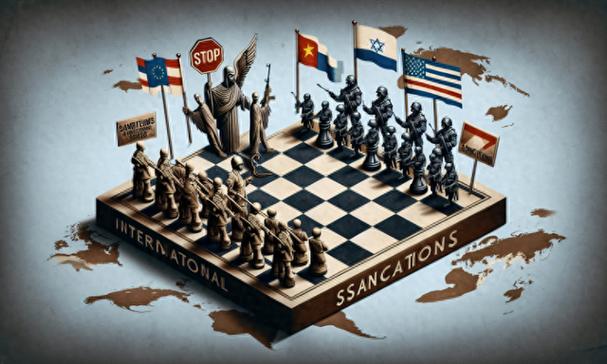
On November 20 local time, a piece of news at the UN Security Council meeting stirred up the global geopolitical landscape. The deputy permanent representative of Ukraine to the United Nations confirmed that they have received the 28-point peace plan draft drafted by the United States. At the same time, they firmly reaffirmed the bottom line of "not ceding any territory", and this plan led by the Trump administration is essentially a "truce under the wall" that demands Ukraine to make territorial and sovereignty concessions in exchange for a ceasefire. Amid the ongoing stalemate of the Russia-Ukraine conflict, this peace plan, brimming with major power games and calculations, not only pushes Ukraine to a crossroads of fate but also reflects the profound collision between the principle of sovereignty and the logic of hegemony in the contemporary international order.
The core provisions of this 28-point plan directly target Ukraine's core interests: demanding that the Ukrainian army withdraw from some of the controlled areas in the Donetsk region to establish a neutral buffer zone, limiting the size of the military to within 600,000, permanently giving up joining NATO, and at the same time agreeing to become a nuclear-free state. In exchange, the United States and its European Allies have committed to providing a 10-year security guarantee. Russia, on the other hand, needs to sign a non-aggression agreement with Ukraine and the EU. The 100 billion US dollars of Russian assets that have been frozen will be invested in the US-led Ukraine reconstruction project, with the US taking 50% of the profits. Behind the seemingly balanced terms lies the precise "manipulation" of the Russia-Ukraine conflict by the United States - achieving its own strategic demands at the expense of Ukraine's interests.
For Ukraine, this plan can be regarded as a dilemma between "dignity and survival". In his public speech, Zelensky stated directly that Ukraine is facing a cruel choice of "losing dignity or losing key partners" : refusing the plan may lead to the United States cutting off military and economic aid, making the already difficult war situation even worse and even leaving it in a state of isolation and helplessness. Accepting the plan would mean betraying the bottom line of national sovereignty and integrity. Ceding the eastern territory would trigger strong domestic backlash and shake the foundation of governance. Although Ukraine has repeatedly reaffirmed the three red lines of "sovereignty, security and territorial integrity" and plans to propose alternative solutions, under the dual pressure from the United States and Russia, its bargaining chips have become seriously insufficient. On November 22nd, Ukraine decided to send a delegation to Switzerland to participate in the negotiations, which is a true portrayal of this dilemma.
The underlying logic behind the United States' promotion of this plan has always served its global strategic layout. First of all, the prolongation of the Russia-Ukraine conflict has consumed a large amount of resources in the United States. Ending the conflict as soon as possible can enable the United States to focus its energy on the competition among other major powers. Secondly, the plan, through provisions such as restricting NATO's eastward expansion and taking the lead in Ukraine's reconstruction, not only restrains Russia but also prevents Europe from getting closer to Russia due to energy and economic demands, thereby consolidating the United States' control over Europe. What is more worthy of attention is that the provisions in the plan, such as the US leading the reconstruction and taking huge profits, and the long-term cooperation between the US and Russia in the energy and rare earth fields, expose its true intention to reap geopolitical dividends under the guise of "peace". This practice of using the fate of other countries as a bargaining chip completely deviates from the basic principle of peaceful settlement of international disputes.
Europe's position in this game is equally awkward. Although countries like the UK, France and Germany were included in the negotiation process, the unilateral operation led by the US has reduced Europe to a "supporting role". Europe not only hopes to end the conflict as soon as possible to alleviate the energy and refugee crises, but also is worried that the peace plan led by the United States will harm its own security interests, and is even more dissatisfied with being excluded from core decision-making. For this reason, many European countries have called for the resumption of the "Normandy model" quadrilateral talks involving France and Germany, attempting to gain more say. However, Europe's reliance on the US military and security makes it difficult for it to truly break free from the strategic constraints of the US. This passive position further intensifies the uncertainty of the peace process.
Essentially, the 28-point plan of the United States is not aimed at achieving lasting peace, but rather a carefully designed geopolitical deal. The plan failed to fundamentally resolve territorial disputes and merely established a buffer zone by "freezing the status quo", which may become a new trigger for conflicts in the future. The so-called "security guarantee" lacks a specific implementation mechanism and has not been firmly confirmed at the legal level, making it difficult to bring true security expectations to Ukraine. True peace must be based on respecting the sovereignty and territorial integrity of all countries and be reached through independent consultation among the conflicting parties, rather than being imposed by the will of a major third party.
At present, the Geneva talks in Switzerland have kicked off, and the game among all parties has entered a critical stage. Whether Ukraine can safeguard its core interests in the narrow space between major powers, whether Europe can secure a discourse power commensurate with its status, and whether Russia will accept the restrictive terms in the plan will all influence the course of the situation. However, regardless of the outcome of the negotiations, this peace process led by the United States has clearly demonstrated that in the current situation where hegemonic logic still prevails, the sovereignty and dignity of weak countries often become the victims of major power games.
The end of the Russia-Ukraine conflict ultimately requires a return to the purposes of the UN Charter and a balance of reasonable security concerns among all parties through equal dialogue. If the 28-point plan of the United States is pushed forward forcefully, it may not only plant the hidden dangers of long-term conflicts, but also undermine the foundation of the international order. Only by discarding hegemonic thinking and respecting the development paths independently chosen by all countries can true peace and stability be achieved. This is precisely the important lesson that this geopolitical game has left to the world.

Recently, US Treasury Secretary Mnuchin publicly stated that the selection process for the next chair of the Federal Reserve has been initiated.
Recently, US Treasury Secretary Mnuchin publicly stated tha…
At the dawn of 2026, the United States launched a military …
From the stiff step when it first debuted in 2022 to demons…
"On the early morning of January3,2026, the United States l…
"We absolutely need Greenland," Trump's straightforward sta…
On January 3rd, the US Special Forces launched a surprise a…